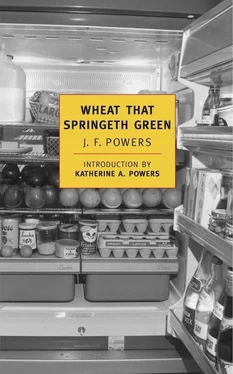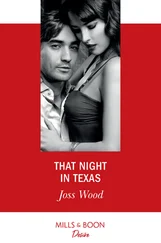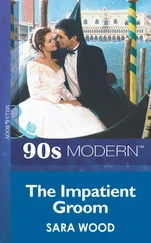J. Powers - Wheat That Springeth Green
Здесь есть возможность читать онлайн «J. Powers - Wheat That Springeth Green» весь текст электронной книги совершенно бесплатно (целиком полную версию без сокращений). В некоторых случаях можно слушать аудио, скачать через торрент в формате fb2 и присутствует краткое содержание. Год выпуска: 2000, Издательство: NYRB Classics, Жанр: Современная проза, на английском языке. Описание произведения, (предисловие) а так же отзывы посетителей доступны на портале библиотеки ЛибКат.
- Название:Wheat That Springeth Green
- Автор:
- Издательство:NYRB Classics
- Жанр:
- Год:2000
- ISBN:нет данных
- Рейтинг книги:5 / 5. Голосов: 1
-
Избранное:Добавить в избранное
- Отзывы:
-
Ваша оценка:
- 100
- 1
- 2
- 3
- 4
- 5
Wheat That Springeth Green: краткое содержание, описание и аннотация
Предлагаем к чтению аннотацию, описание, краткое содержание или предисловие (зависит от того, что написал сам автор книги «Wheat That Springeth Green»). Если вы не нашли необходимую информацию о книге — напишите в комментариях, мы постараемся отыскать её.
Wheat That Springeth Green — читать онлайн бесплатно полную книгу (весь текст) целиком
Ниже представлен текст книги, разбитый по страницам. Система сохранения места последней прочитанной страницы, позволяет с удобством читать онлайн бесплатно книгу «Wheat That Springeth Green», без необходимости каждый раз заново искать на чём Вы остановились. Поставьте закладку, и сможете в любой момент перейти на страницу, на которой закончили чтение.
Интервал:
Закладка:
So, though not in the church much, Joe was on his knees a lot. When he discovered the state of his knees, however, which were only lightly callused (nothing like those he’d once seen on a visiting Trappist monk in the showers at the seminary — horny gray growths like the chestnuts on the legs of a horse), Joe felt he had a long way to go. The question was whether a diocesan priest — not the really rare one, like Father Van Slaag, but the merely unusual one, like Joe — with his ministry in and to the world, which would rub off on him, could ever go very far; whether in time, after constant, close association with parishioners and coming under their subtle influence, he wouldn’t cease to be spiritually, perhaps even mentally, an adult. What was true in other fields of human endeavor at the highest level, in the arts and sciences and sports — namely, that success involves a hell of a lot of slogging — just had to be true, Joe believed, in the field of spirituality: not a crowded field but the trickiest of all to get anywhere in. The notion, so popular nowadays, that the best kind of spirituality just happens and is the by-product of routine apostolic activity, or, as some of Joe’s critics at the seminary had claimed, is actually the same thing — well, Joe hadn’t believed it then and didn’t now.
“The priest’s life,” Joe said at the class’s next little get-together, to which he’d received what had seemed to him a last-minute invitation, “ any priest’s life, anybody’s life, in order to be fruitful in this world, to say nothing of the next, has to be rooted in contemplation. This is especially true of our life, which otherwise becomes one of sheer activity — the occupational disease of the diocesan clergy.”
“Look,” Rooney said. “I don’t want to listen to that stuff tonight. I’m here to relax. You guys don’t know what it’s like to run a four-hundred-family parish all by yourself.”
“That so?” replied Joe. “Happens to be what I’m doing at Holy Faith.”
“Another parish heard from,” said Cooney.
“Bob,” Mooney said to Rooney, “we all have our crosses to bear.”
“I still don’t want to listen to that stuff tonight,” Rooney said. “I had a tough day.” So Joe shut up, and the clerical shoptalk, which he’d only cut into because it had gone on too long, continued.
At the very end, when Joe was leaving the restaurant for the parking lot, he was approached by Rooney. “Sorry, Joe,” Rooney said. “But I had a tough one today.”
“Bob, I know what you mean.”
They went out to their cars together.
In the weeks that followed, Joe and Bob saw more of each other than they ever had before, except for that short time at the seminary when Bob had embraced the contemplative life. Joe hoped that Bob was having second thoughts about the active life, that it wasn’t only their plight as overworked assistants that had drawn them together again, but in any case he had a friend in Bob. They knew each other’s phone number by heart, and frequently met in the course of their duties — Bob pausing at Holy Faith on his way home from downtown, Joe at St John Bosco’s, Bob’s parish, after visiting the hospital nearby.
St John Bosco’s, unlike Holy Faith, was a new plant, with paid secretaries, the latest in equipment, and programs and organizations galore, many overlapping. The parish was too much for one man — even for him, Bob said, unless he was there every minute, which he couldn’t be. The pastor, Monsignor McConkie, or Mac, as Bob called him, a handsome silver-haired glad-hander, who had long ago joined everything joinable and now acknowledged when he got up in the morning, if he did, that he was in too deep and had a serious drinking problem, expected Bob to “represent” him and the parish at functions that Mac was under both doctor’s and confessor’s orders to stay away from. The worst ones — worst because there was no end to them — were service-club luncheons at downtown hotels. Bob attended three or four of these a week, and it was usually after one of them, in the middle of the afternoon, in high spirits or low, that he paused at Holy Faith.
Joe, usually in the office at that time of day — he’d moved the old prie-dieu down there — would make a drink for the visitor, as was the practice at St John Bosco’s, and they’d discuss what was uppermost in their minds: Boots, if she’d gone for Bob on the way in; Mrs Cox, if the TV in the living room was coming through well; or problems of universal concern. One of these was church finance, a subject that Bob had ideas about and that Joe, though he’d scorned it and clerical bookkeeping at the seminary, now felt he should interest himself in. To judge by some correspondence from the Chancery in the files, nobody else at Holy Faith had done so in recent times. What could be said of the take at Holy Faith — not enough — could also be said of organizations: only two, the Holy Name Society (men) and the Christian Mothers (their wives). Reluctantly, Joe would agree that something should be done about Youth or, anyway, about Young People and Young Marrieds — Bob had ideas about all these — but then Joe would renege and say he didn’t want to bite off more than he could chew: a veiled reference to the situation at St John Bosco’s.
“Heaven forbid!” Bob said. “Still, we’re in the same boat, Joe.”
That they were in the same boat (a commonplace in their discussions) and that Bob was having a rougher ride Joe would accept, but he couldn’t agree that there was so little to choose between those responsible for their plights — between, if you didn’t count the Archbishop, a mystic and a drunk — as to make no difference. One afternoon, Joe told Bob that it was the Father Van Slaags, oddly enough, and not the Monsignor McConkies, who kept the world going, who, by their feats of prayer and abnegation, stayed the hand of God. This, though he didn’t like to hear it — noncontemplatives never did — Bob knew to be the accepted and time-honored belief of the Church.
Joe would have made his point even better had he spoken of what he’d seen the night before, when he’d gone to Father Van Slaag’s room to complain about Boots and Mrs Cox’s TV, only to change his mind and ask permission to order Sunday-collection envelopes from another supplier, and then to retire to think, as he’d been doing ever since, on what he’d seen through the gaps in the old, almost buttonless cassock that Father Van Slaag wore for a nightshirt — the horny gray growths on the knees, the dogtooth wounds on the ankles. Dear God! What Joe had wondered about ever since coming to Holy Faith was clear to him then: why Father Van Slaag did nothing about Mrs Cox’s dog and TV. He was using them, these crosses, as a means to sanctification and salvation — making life make sense, which it otherwise wouldn’t. Out of prudence, and out of reverence for Father Van Slaag, Joe didn’t tell Bob or anyone else what he’d seen that night, but thereafter, whenever Bob said that their pastors ought to be put away — Mac in a sanitarium, Van in a cloister or cave — Joe was silent, brooding on those ankles and knees in awe and humility. He had decided that Father Van Slaag was — and not just in the sense that the word applied to anybody in the state of grace but in the sense that it applied to the big-time mystics and martyrs — a saint.
Before that night in Father Van Slaag’s room, Joe had tried to do the job he’d been ordained to do for God and humanity while also trying, for the sake of the former, to preserve himself to a degree from the latter, but afterward there was a change in him. Without exactly going ape, Joe let down the barrier and no longer distinguished as he had before, sharply, between the religious and the social demands of parishioners. Mrs Cox noticed it. “What?” she’d say. “Stepping out again?”
Читать дальшеИнтервал:
Закладка:
Похожие книги на «Wheat That Springeth Green»
Представляем Вашему вниманию похожие книги на «Wheat That Springeth Green» списком для выбора. Мы отобрали схожую по названию и смыслу литературу в надежде предоставить читателям больше вариантов отыскать новые, интересные, ещё непрочитанные произведения.
Обсуждение, отзывы о книге «Wheat That Springeth Green» и просто собственные мнения читателей. Оставьте ваши комментарии, напишите, что Вы думаете о произведении, его смысле или главных героях. Укажите что конкретно понравилось, а что нет, и почему Вы так считаете.












